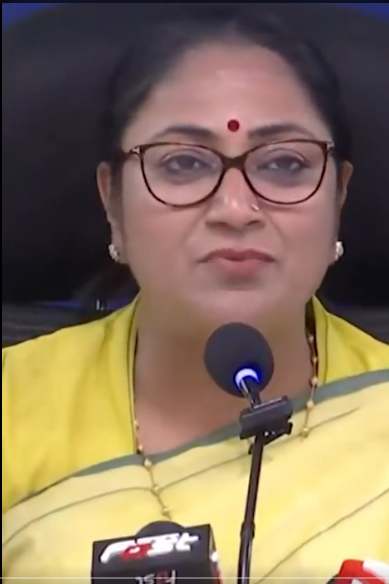New Delhi: In a significant move to revamp the capital’s agricultural wholesale markets, Chief Minister Rekha Gupta on Friday announced a comprehensive modernisation drive targeting all major mandis across Delhi. Chairing a high-level meeting, Gupta called for urgent action to tackle long-standing civic and infrastructural challenges plaguing fruit, vegetable, and flower markets, including the prominent Azadpur Mandi.
Expressing concern over the deteriorating condition of these vital trading hubs, the Chief Minister said the Delhi government is fully committed to transforming them into clean, modern, and efficient spaces that cater to the needs of farmers, traders, and consumers alike.
“There will be no shortage of funds for improving our mandis. These markets are the heartbeat of Delhi’s economy and a lifeline for farmers from neighbouring states. Financial limitations will not be allowed to hinder progress,” Gupta declared during the meeting.
The initiative comes in the wake of Gupta’s recent visit to Azadpur Mandi, where she reportedly witnessed heaps of uncollected garbage, damaged roads, stray animals, and inadequate basic facilities. She said that feedback from traders and visitors highlighted the urgent need for systematic reform and investment.
The meeting, held at the Delhi Secretariat, was attended by Development Minister Kapil Mishra, senior officials from the Delhi Jal Board, Public Works Department (PWD), Municipal Corporation of Delhi (MCD), and representatives from other civic agencies. Since mandis fall under the jurisdiction of the development department, the inter-agency meeting aimed to coordinate responsibilities and establish clear timelines for implementation.
According to officials present, the action plan includes a range of measures such as:
-
Immediate improvements to sanitation and waste disposal
-
Setting up of waste-processing facilities near major markets
-
Fast-tracking of sewer and drainage repairs to prevent monsoon-related waterlogging
-
Upgrading internal road infrastructure
-
Installation of CCTV cameras for market security
-
Ensuring round-the-clock availability of clean drinking water
-
Joint action with MCD to address stray animal issues
Gupta also instructed departments to conduct detailed studies of successful market modernisation models in other Indian states, with the goal of replicating effective solutions in the capital. “We are not just fixing broken roads or drains. We are reimagining what a mandi should be in the 21st century — safe, sanitary, and smart,” she said.
Delhi currently has seven major mandis overseen by the Delhi Agricultural Marketing Board. These markets serve as critical centres for the wholesale trade of fruits, vegetables, grains, poultry, fish, and flowers. They support the supply chains of restaurants, hotels, caterers, and small retailers across the Delhi-NCR region. However, years of administrative neglect have left many of these markets in disrepair, with basic amenities often missing or poorly maintained.
To ensure accountability and transparency, the Chief Minister has directed departments to conduct surprise inspections of market sites. These visits will help monitor the pace and quality of work and provide real-time feedback for course corrections.
“Our goal is not just beautification but long-term improvement that makes life easier for farmers, traders, and consumers,” Gupta said. “Delhi’s mandis must reflect the standards of a world-class city.”
The Chief Minister assured that land and other necessary resources will be made available to expedite the transformation plan. The government also plans to involve stakeholder associations to gather on-ground insights and ensure that the redevelopment is inclusive and effective.
With Delhi’s mandis playing a central role in both urban food supply and rural livelihoods, the city’s leadership is hopeful that this overhaul will set a new benchmark for agricultural markets across the country.








